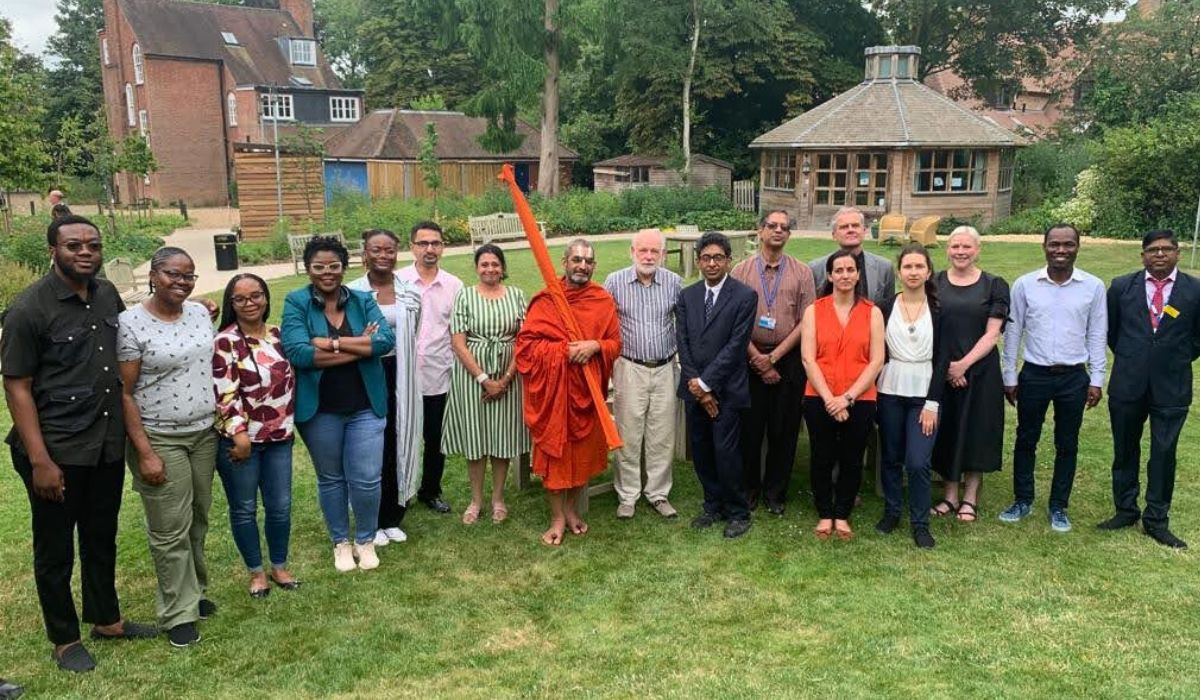College DoS, Dr Saradamoyee Chatterjee, facilitated a workshop concerning the responsibility of humans to protect nature.
Do animals have rights? Do plants have rights? Do we humans have the ultimate authority to decide how we use animals or tree ecosystems as we please? Should we think differently about animals that share this planet with us?
On the 28th of June, scholars and experts in sustainable development, animal rights law, veterinary science, and public policy gathered at Lucy Cavendish College to discuss important ethical, legal, and policy issues concerning the responsibility of humans to protect nature. The workshop was jointly convened by Professor PB Anand, Department of Peace Studies and International Development at the University of Bradford, and Dr Saradamoyee Chatterjee, Lucy Cavendish College, University of Cambridge. Contributions to the workshop would be published as a volume in the Lucy Cavendish-Routledge book series, in which Dr Chatterjee is a co-editor.
College President, Dame Madeleine Atkins, welcomed everyone to the College. After a brief introduction from Prof PB Anand on the aims of the workshop, HH Chinna Jeeyar Swamy in his keynote outlined some of the important ideas from ancient scriptures and reminded us that pre-modern societies lived with nature. Humans in modern society began corrupting the animals and plants through hybridisation, exaggerating certain aspects for profitability and interfering with nature. He also mentioned the scripture about what humans are supposed to eat: “in the skies is the wind; in the wind there is fire; with fire there is water; with water is the earth; in the earth the medicines grow; these are the food.”
Rev Andy Bowerman, Dean of Bradford Cathedral spoke about the key messages of Christian theology beginning with some negative interpretations and then concluding with more positive messages of Christian theology which connect humans with all forms of life.
Dr David Williams, a Veterinary Ophthalmology lecturer at Cambridge University, through pictures and cases showed how animal well-being can be promoted and how human greed and competition for keeping the price of milk low results in animal suffering.
Dr Sean Butler of the Cambridge Animal Rights Law began with a categorical statement that there is no country in the world where animal rights are presently recognised. He mentioned the progress being made in this regard but that there is still a long way to go to recognise and protect the idea of rights of animals.
The afternoon session began with Rabindra Sangeet’s rendition of an important poem of Tagore on the fragility of life, of interconnectedness and of the inherent beauty of nature in every blade of grass and the shining drop of water gleaming on the back of a deer (sung by Ankur Barua and Saradamoyee Chatterjee - both University of Cambridge lecturers) while Hina Khalid presented an analysis.
Prof Jill Jameson (the co-editor of the Routledge book series of Greenwich University) spoke about toxic leadership and the urgent need to overcome this as a way of developing education systems that can develop the sustainability leaders of tomorrow.
Cambridge PhD student, Trevelyan Wing, presented about the indigenous Sami people of Northern Europe and how their deeper relationship with nature is threatened by the lack of rights and recognition of their way of life.
Several African scholars raised questions about their understanding of the challenges of balancing what is considered African culture in terms of animals as food and the right to survive and the rights of animals. University of Bradford student Evelina from the Plant-based universities movement reminded the participants that our choice of food is threatening the climate and the very future of existence. There were also questions about the rapacious exploitation of natural resources by governments and private corporations and how ecosystems can be protected against greed.
The contributions and discussions at the workshop will form the basis for future work in this area including a volume in Lucy Cavendish-Routledge book series, as mentioned earlier and for subsequent workshops and the development of a Cambridge Declaration on Ethics for a Living Planet.




